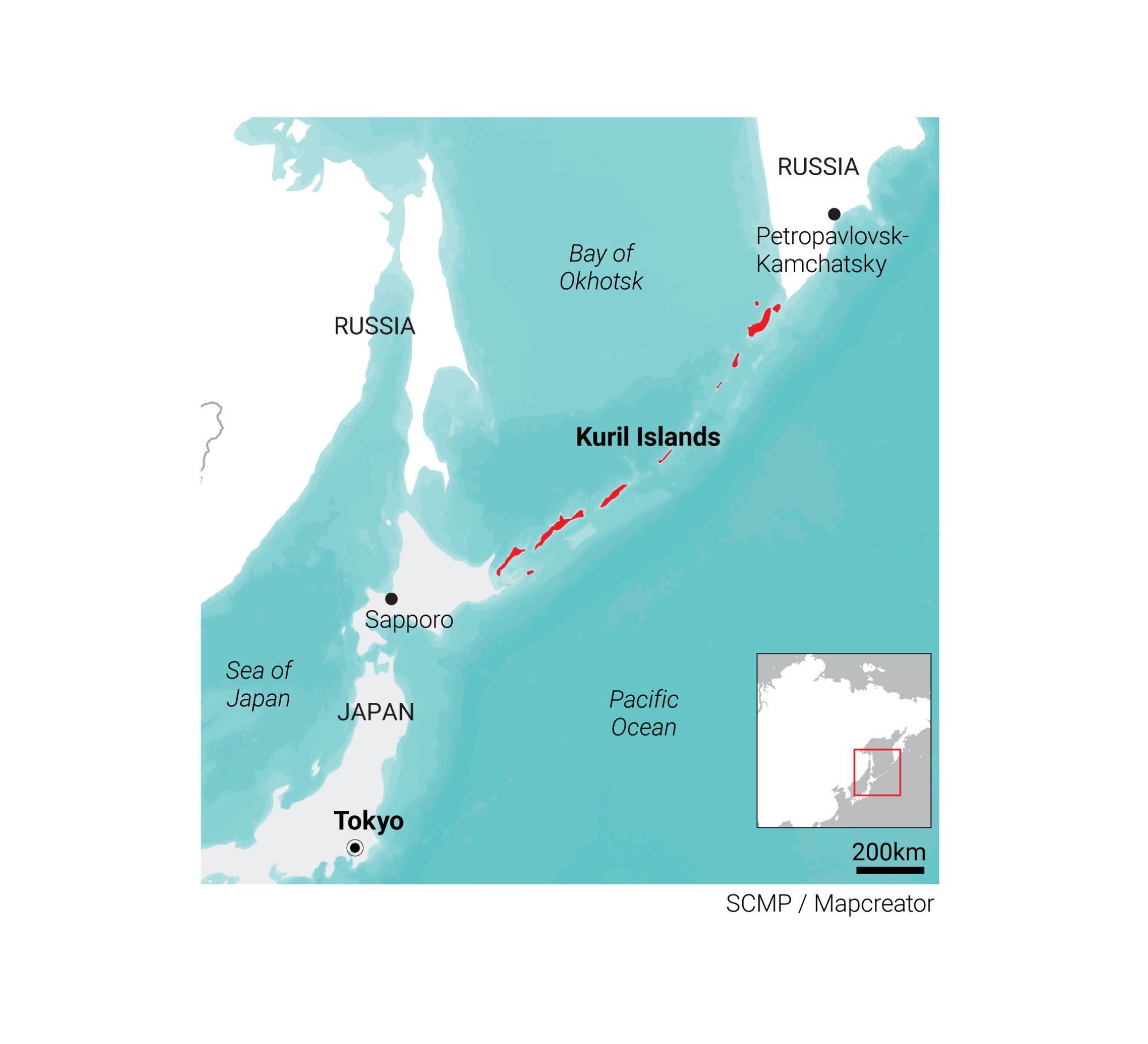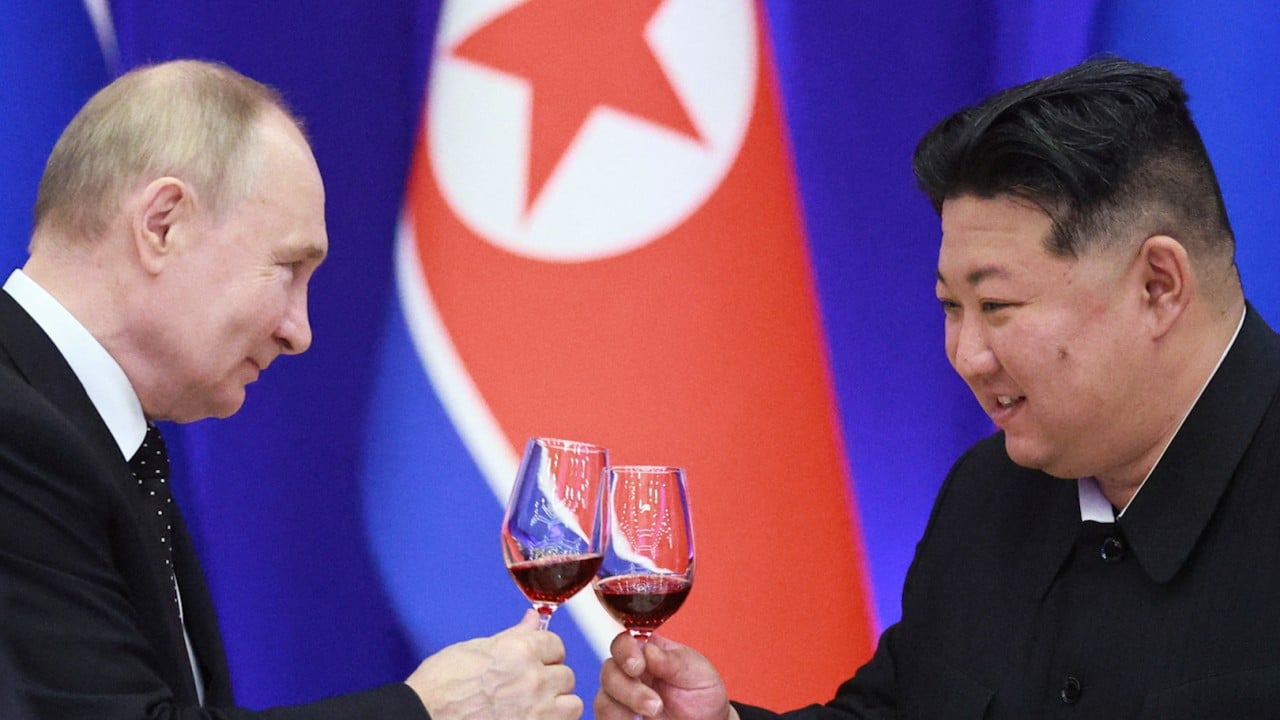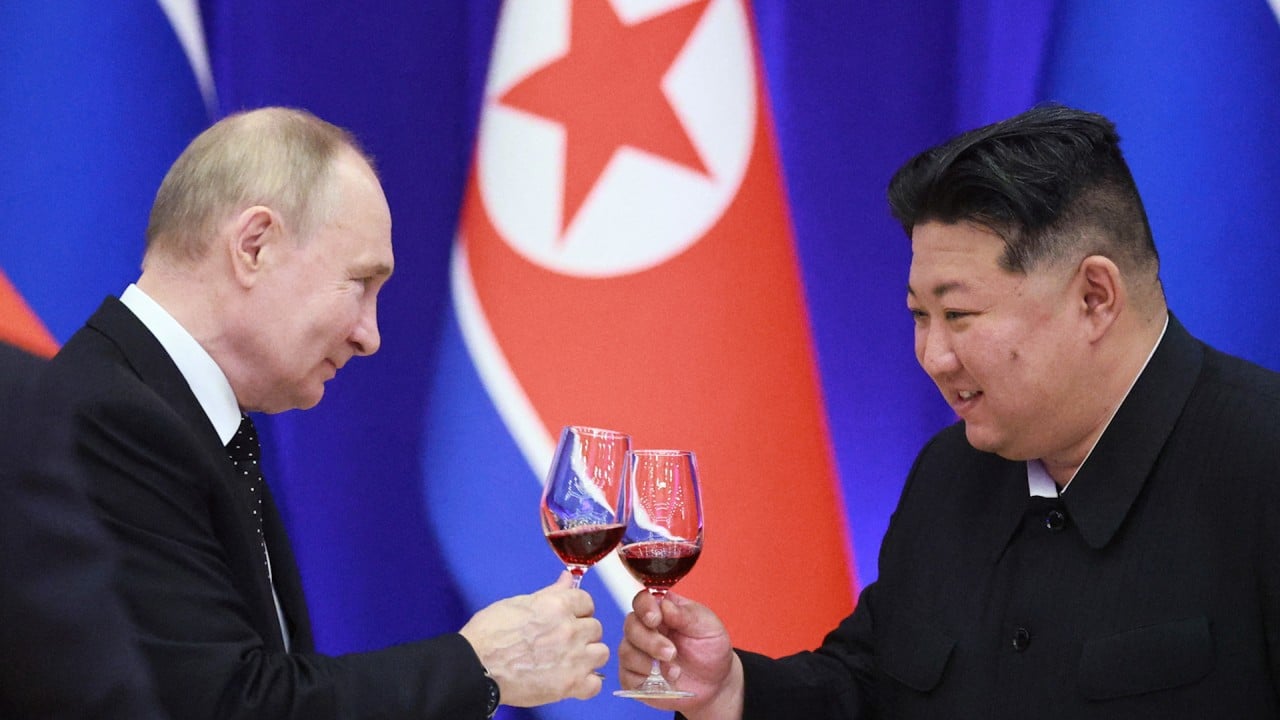Amid an array of Russian flags and flattering portraits, Russian President Vladimir Putin landed in North Korea for the first time in 24 years last week, highlighting changing security dynamics in East Asia which could have deep implications.
The visit took place against the backdrop of the suspension of the Comprehensive Military Agreement, signed by North and South Korea in 2018. The treaty formalised the suspension of live-fire drills, removal of some guard posts and implementation of a no-fly zone, among other measures, and its suspension further destabilised conditions on the Korean peninsula.
Putin and North Korean leader Kim Jong-un signed the Treaty on Comprehensive Strategic Partnership, providing a legal framework for a long-term agreement that is “strictly peace-loving and defensive” in nature. Hailed by North Korean state news agency KCNA as an “engine for accelerating the building of a new multipolar world”, the treaty formalises and gives strength to the emerging defence partnership between Russia and North Korea.
In addition to exacerbating tensions between the two Koreas, Putin’s visit is also a major cause of concern for the United States and its allies in the region. Perhaps the most worrying is the inclusion of a mutual defence clause, establishing the scope for support in case either Russia or North Korea are invaded. The two have also not ruled out the possibility of military-technical cooperation in the future.
The US has portrayed the agreement as a destabilising factor on the Korean peninsula. US Secretary of State Antony Blinken said during a call with South Korean Foreign Minister Cho Tae-yul that the deepening ties between North Korea and Russia reaffirmed the vital importance of the US-South Korea alliance in promoting peace, security and prosperity around the world.
South Korea has announced its own set of measures as a response. Calling the Russia-North Korea pact a direct threat to its national security, Seoul said it would reconsider its position on supplying arms to Ukraine, potentially reversing a long-standing policy of not supplying arms to any nation that is engaged in conflict.

South Korea’s foreign ministry also summoned Russian Ambassador Georgy Zinoviev to officially express its outrage over the pact.
In response to criticism of the pact, Russian Foreign Minister Sergey Lavrov argued that the mutual defence clause was purely defensive and in accordance with Article 51 of the United Nations Charter. He went on to accuse those criticising the agreement of planning aggression against North Korea or Russia.
The treaty means North Korea has an additional security partner, building on the mutual defence treaty it already has with China. In comparison to the China-Russia comprehensive strategic partnership, the one between Russia and North Korea appears to be more descriptive about what both sides perceive as attempts at Western isolation.
While China has made efforts to keep North Korea in check, the elevation of Pyongyang’s relations with Moscow to a strategic alliance provides Pyongyang with an assurance of support in dire situations.
North Korea’s perceptions of its security have been shaken amid the increasingly close trilateral arrangement between the US, South Korea and Japan. In a situation where it feels cornered in the geopolitical arena, Pyongyang previously had to rely solely on Beijing to provide support for its ambitions in the region.
However, North Korea’s confidence in China appears to have been shaken by Beijing’s commitment to the denuclearisation of the Korean peninsula during a three-way dialogue with Japan and South Korea last month. Pyongyang condemned the talks as a “grave political provocation” and a violation of its sovereignty.
North Korea’s new treaty with Russia doesn’t just allow it to go forward with its plans – it emboldens it to go even further as Moscow has shown little hesitation in spoiling its relations with Tokyo and Seoul. Moreover, Japan and now potentially South Korea lending their support to Ukraine has further strengthened Russia’s interest in pushing military collaboration with North Korea.

However, there are limits to China’s support for such an alliance. Any adventurism from Moscow and Pyongyang has the potential to jeopardise Beijing’s economic interests in the region. In a battle for global image, China is bound to lose ground if it expressly supports the Russia-North Korea alliance.
While it has not outwardly criticised North Korea, China has sought to normalise relations with Japan and South Korea. China is likely wary of losing influence given that its closest ally in Northeast Asia has opened a new channel for support.
Instability in Northeast Asia is also detrimental to the interests of the US and its allies. The only sustainable way out of this is for all sides to stress diplomatic efforts. While the interests of Washington, Beijing, Tokyo and Seoul all diverge in one area or another, regional stability is one goal each of them would cherish.
The US and China must seek to build mutual trust while mitigating the growing crisis on the Korean peninsula. However difficult coming up with a collaborative approach might be, doing so would serve the interests of everyone in the region.
Gagan Hitkari is a PhD candidate at the Department of East Asian Studies, University of Delhi, India



